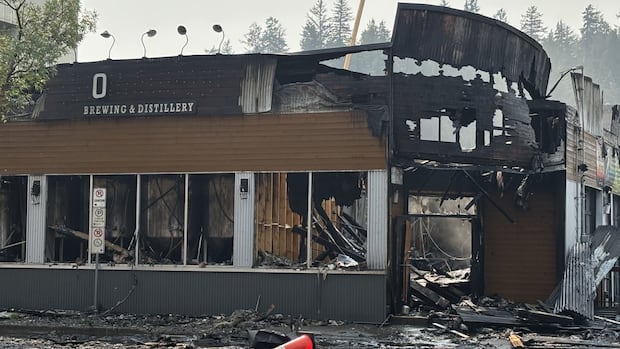A new piece of legislation could enable people who are highly intoxicated to be detained for up to three days — something Manitoba's addictions minister and Winnipeg's chief of police say keeps everyone more safe.
NDP MLA Bernadette Smith, the minister responsible for housing, homelessness and addictions, introduced Bill 48, or the Protective Detention and Care of Intoxicated Persons Act, during question period Thursday. It would extend the length of time of involuntary detention from 24 to 72 hours.
"Right now, intoxicated individuals must sit in emergency rooms or wander around in public potentially causing harm to themselves or others or even property," said Smith. "Bill 48 closes the gap in current legislation. It allows protective care centres to look after people who are under the influence of substances other than alcohol, such as meth."
Smith said the legislation is grounded in dignity and meant to both keep people in the throes of addiction safe and improve public safety.
The existing Intoxicated Persons Detention Act was adopted in 1987.
Under the current act, police are allowed to take someone to a detox centre, such as the one operated by Main Street Project, where they may remain for up to 24 hours while they sober up. Sometimes during intake they're assessed and taken to hospital.
Main Street Project will serve as a 'protective care centre' under the new legislation, Smith says. (Darren Bernhardt/CBC)
The act allows for longer detention periods with the permission of the detoxification centre, or they can be let out sooner based on an application from a family member or adult loved one who can look after them.
If passed, the new NDP bill would replace that legislation, as well as the province's Detoxification Centres Regulation.
Smith said it would also expand the definition of who can be detained, from those under the influence of alcohol to those intoxicated by drugs, alcohol or both. Right now, people found intoxicated from meth or other drugs must be taken to hospital or other kinds of detention facilities, she said.
"They're criminalized or they're taken to the hospital where they're waiting for 10-plus hours from what we're told from the police," said Smith. "They're often maybe handcuffed to a bed or a chair for their own safety or others."
Addictions Minister Bernadette Smith during question period after introducing Bill 48. (Bryce Hoye/CBC)
The new legislation would enable all highly intoxicated people to be involuntarily held for up to 72 hours in protective care centres. Operators of a protective care centre could release them sooner if they've sobered up.
Those held would also be subject to medical assessments, including when the person detained remains intoxicated after a full 24 hours. The same goes if the person remains intoxicated after 48 hours.
If a health-care professional doing the assessments finds the person can be released, the protective care centre would have to release them. That same assessor can order a person be taken involuntarily by an officer for medical examination under the Mental Health Act.
Someone who is no longer intoxicated is also allowed to stay in the event they need to be connected to other resources.
Police, health-care workers and other staff at protective care centres would also themselves have legal protections "for anything done or omitted to be done in good faith" in the course of caring for or detaining someone who is intoxicated, according to the bill.
Smith said the changes would take pressure off police and hospital staff currently involved in monitoring highly intoxicated people so they can focus on emergencies.
Winnipeg police Chief Gene Bowers said the move would free up police resources.
"Check the well-being calls, for the Winnipeg police, is the top call we have as a service, and definitely these calls tie up a lot of resources," Bowers said Thursday at the legislature.
"The main thing I think about this bill is we're not criminalizing people, we're keeping them in a safe place so they're not harming themselves or harming anyone else in the community."
Smith said there will be expanded medical and other services at Main Street Project to accommodate the changes.
Official Opposition Leader Obby Khan questioned why more details weren't shared ahead of the tabling of the bill. He said it remains unclear how protective care centres will be funded, among other concerns. (Bryce Hoye/CBC)
Official Opposition Leader Obby Khan criticized the NDP for not making the bill available ahead of when it was introduced Thursday.
"What is a 'protective care centre?' Who's paying for it? Is that the only one? Where are they located? I mean, the questions we have are legitimate in this and we have no answers from the government because they haven't had a conversation with us and told us anything," Khan said.
"It's another big flashy announcement by this NDP government with no details. There's no real plans in there," said Khan.
[SRC] http://www.cbc.ca/news/canada/manitoba/move-to-keep-highly-intoxicated-people-detained-for-up-to-3-days-could-boost-safety-winnipeg-police-chief-1.7649909
 Visit the website
Visit the website






